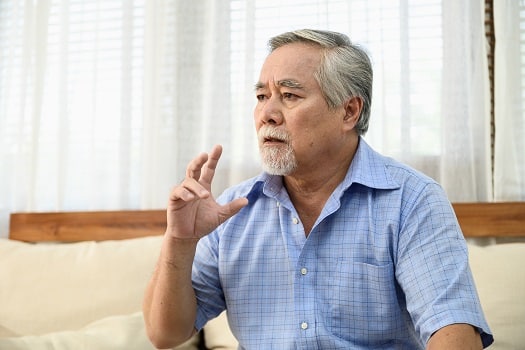Navigating Dementia Care: Crafting Personalized Care Plans
Dementia is a complex condition that affects millions of people, impacting memory, cognition, and daily functioning. Crafting personalized care plans is essential for enhancing quality of life for both dementia patients and their caregivers. In this guide, we delve into the key components and strategies for creating a comprehensive care plan tailored to the unique needs of a person living with dementia.
Understanding Dementia: The Basics
Before diving into care planning, it’s crucial to grasp the fundamentals of dementia. Dementia isn’t a specific disease but a term used to describe worsening cognitive abilities that are severe enough to interfere with daily life. Alzheimer’s disease is the most common cause of dementia, but there are various other types, each with its own set of symptoms and challenges.
The Importance of a Personalized Approach
Every person experiences dementia differently, requiring a personalized care plan. Factors such as the stage of dementia, coexisting medical conditions, and personal preferences must be taken into account when developing a care strategy. A one-size-fits-all approach simply won’t suffice when it comes to dementia care.
A highly trained caregiver with experience in caring for seniors with dementia can be a fantastic resource for family members. For trusted and reliable dementia care, families can turn to Companioa by Institute on Aging (IOA). As experts in caring for seniors with memory-related conditions, our dementia-certified practitioners will work closely with you to customize a care plan tailored to your loved one’s unique needs, interests, and desires. Our primary goal is to go above and beyond to provide the highest possible level of compassionate care by designing a care plan based on your loved one’s personal history, physical condition, and cognitive abilities.
Key Components of a Care Plan
- Assessment and evaluation – Begin by conducting a thorough assessment of the senior’s physical, cognitive, and emotional health. This evaluation should involve healthcare professionals, caregivers, and, when possible, the person with dementia themselves.
- Setting goals – Establish clear achievable goals that align with the senior’s needs, abilities, and preferences. These goals may include encouraging independence in performing daily activities, managing symptoms effectively, promoting social engagement, and boosting quality of life.
- Addressing medical needs – Collaborate with healthcare providers to address medical needs, such as medication reminders, symptom control, and coordination of care with specialists.
- Daily routines and activities – Develop a structured daily routine that provides stability and familiarity. Incorporate meaningful activities that cater to the senior’s interests and abilities, fostering a sense of purpose and engagement.
- Nutrition and hydration – Ensure proper nutrition and hydration by offering well-balanced meals and snacks, monitoring fluid intake, and addressing any swallowing difficulties or dietary restrictions.
- Safety precautions – Implement safety measures to minimize the risk of accidents and injuries, such as removing hazards from the environment, installing grab bars and handrails, and using assistive devices as needed.
- Emotional support – Provide emotional support and companionship to alleviate feelings of loneliness, anxiety, and depression. Encourage open communication and validate the senior’s emotions and experiences.
- Caregiver support – Family caregivers play a vital role in dementia care and must receive adequate support and resources. Education, respite care, and access to support services can prevent caregiver burnout and promote their wellbeing.
Tailoring the Plan to Each Stage of Dementia
Dementia progresses through stages, each presenting unique challenges and care needs. A comprehensive care plan should adapt to these changes, evolving alongside the individual’s condition. Here’s a brief overview of care considerations for each stage:
- Early stage – Focus on maximizing independence and maintaining cognitive function through cognitive stimulation activities, memory aids, and lifestyle modifications.
- Middle stage – Provide assistance with daily activities such as grooming, dressing, and meal preparation. Implement strategies to address behavioral symptoms and promote social engagement.
- Late stage – Prioritize comfort and quality of life, ensuring access to palliative care services and addressing end-of-life preferences. Offer gentle sensory stimulation and companionship to promote comfort and emotional wellbeing.
Resources & Support for Dementia Care
Navigating dementia care can be challenging, but numerous resources and support services are available to assist people with dementia and their families. These may include:
- Alzheimer’s groups – Organizations such as the Alzheimer’s Association offer educational resources and help lines for individuals and families affected by dementia.
- Caregiver support programs – Many communities offer caregiver support programs that provide respite care, counseling, and educational workshops for caregivers.
- Online forums and communities – Joining online forums can connect caregivers with others facing similar challenges, offering valuable advice, empathy, and encouragement.
The days, weeks, and months following a dementia diagnosis can be challenging for both seniors and their families. However, these challenges can be made less stressful with the help of caregivers trained in professional dementia and Alzheimer’s care. Companioa by IOA is here to help your loved one enjoy the golden years while simultaneously managing the symptoms of dementia.
Empowering Dementia Caregivers
Crafting a comprehensive care plan for a dementia patient is a multifaceted endeavor that requires collaboration, compassion, and flexibility. By understanding the senior’s unique needs, setting realistic goals, and accessing appropriate support and resources, caregivers can enhance quality of life for both themselves and their loved ones living with dementia.
For dementia and Alzheimer’s care families can count on, reach out to Companioa by IOA. Our compassionate home caregivers are specially trained and certified in dementia care, and they use revolutionary memory care programs to help seniors delay the progression of dementia. In addition, our state-of-the-art adult day program, which is specifically designed for individuals living with Alzheimer’s or dementia, provides social engagement, a wide variety of cognitively stimulating activities, and group exercises. Call one of our compassionate Connect Specialists today at (415) 750-4111 to learn more about our exceptional dementia care services.







